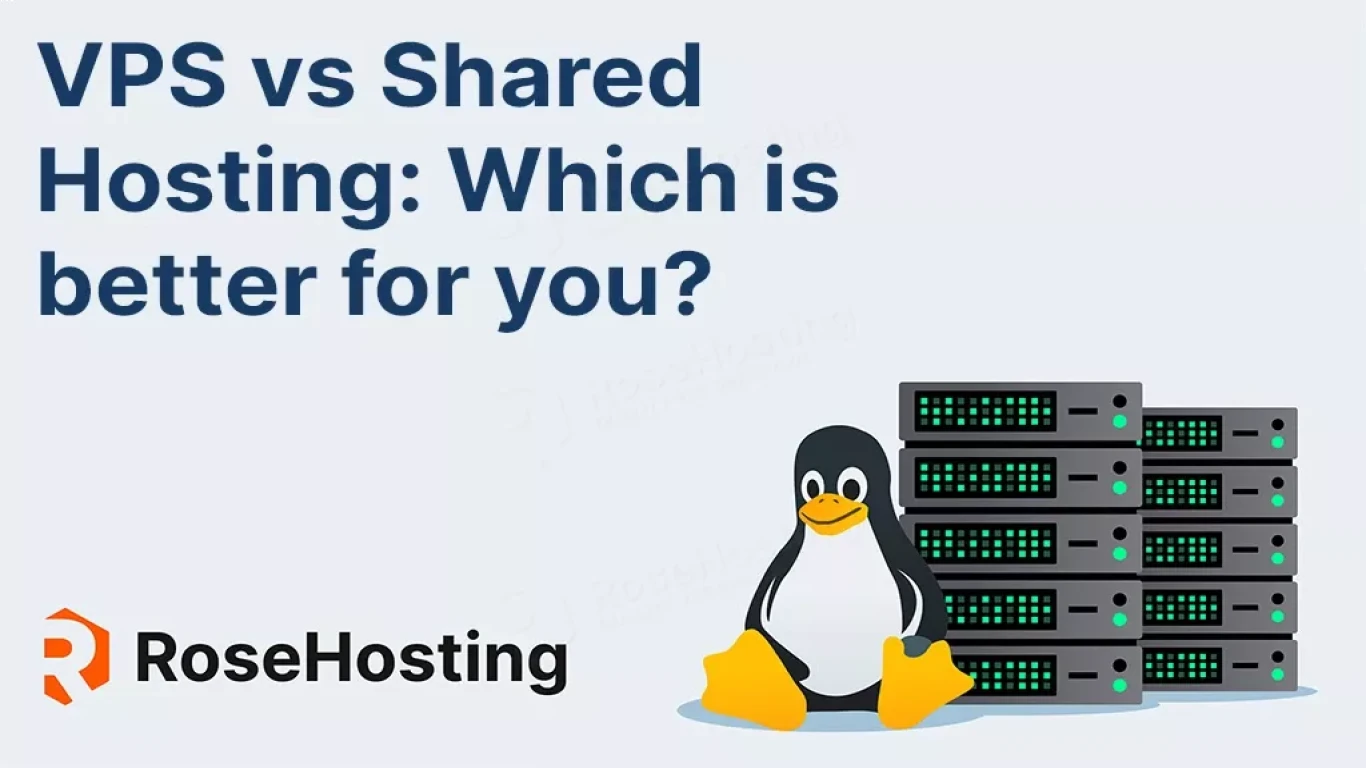VPS vs Shared Hosting: Which One is Right for You?
VPS vs Shared Hosting: Which One is Right for You?
When you’re venturing into the world of web hosting, two common options you'll encounter are VPS (Virtual Private Server) and Shared Hosting. Choosing the right one for your website can be a game changer, so let’s dive into the specifics, pros, and cons of each to help you decide which is the right choice for you.
Understanding Shared Hosting: The Basics
What is Shared Hosting?
Shared hosting is like living in an apartment complex. You’re sharing the same resources—like CPU, RAM, and storage—with other websites on the same server. This is usually the go-to choice for beginners and small websites due to its affordability and ease of use.
Pros of Shared Hosting:
- Cost-Effective: It's typically the cheapest option available.
- Ease of Use: Shared hosting services often come with user-friendly control panels.
- Maintenance: Server maintenance and administration are handled by the hosting provider.
Cons of Shared Hosting:
- Performance Issues: If another website on your server experiences high traffic, it might affect your site’s performance.
- Limited Resources: You share your server’s resources with others, which limits your potential.
- Security Risks: Security vulnerabilities on another website may pose risks to your site.
Exploring VPS Hosting: The Details
What is VPS Hosting?
VPS hosting acts more like a condo or house. You still share a physical server, but you have your own dedicated slice of its resources, thanks to virtualization technology. This provides more flexibility and control compared to shared hosting.
Pros of VPS Hosting:
- Greater Control: You have root access and can customize your server settings.
- Improved Performance: Dedicated resources mean better and more consistent performance.
- Enhanced Security: Isolated environments offer better protection against security threats.
Cons of VPS Hosting:
- Higher Cost: VPS hosting is generally more expensive than shared hosting.
- Technical Complexity: Requires a bit more technical knowledge to manage.
- Maintenance Responsibility: You might need to handle some server maintenance.
When to Choose Shared Hosting?
Shared hosting is best suited if:
- You are starting a small website or blog.
- Your traffic expectations are low.
- You have limited technical skills.
- Budget is a significant concern.
When to Opt for VPS Hosting?
VPS hosting could be the right choice if:
- Your website is growing and needs more resources.
- You desire more control over server settings.
- Enhanced security is a priority.
- You anticipate higher traffic volumes.
Performance Comparison: Shared Hosting vs VPS Hosting
While shared hosting might initially seem tempting, especially for new entrants, its performance varies greatly with the load brought by other websites. In contrast, VPS hosting provides a more stable and reliable performance, thanks to isolated resources.
Security Levels: How VPS Takes the Lead
Security is a critical aspect of any website. VPS hosting generally offers better security than shared hosting, given the isolated environment each server offers. This reduces the chances of malware or vulnerabilities affecting your website due to someone else’s mistake.
Cost Analysis: Which is More Budget-Friendly?
If your primary concern is cost, shared hosting wins hands down. It’s an ideal solution for startups or personal websites. However, if you’re looking for a long-term solution with scalability, the cost may justify investing in VPS hosting.
Ease of Management: The User Experience
For beginners or those who prefer a hands-off approach to server management, shared hosting provides a straightforward, user-friendly experience. VPS hosting, on the other hand, often requires more involvement but offers greater flexibility and customization opportunities.
Scalability Factors: Growing Your Online Presence
Scalability is where VPS outshines shared hosting. As your website grows, you can adjust resources with VPS hosting without any significant downtime or migration issues, something that’s often a challenge with shared hosting.
Customization Needs: How VPS Wins in Flexibility
If your website demands specific software or configurations that aren't typical, VPS hosting is the way to go. With root access, a VPS allows you to install and configure applications to tailor the server to your specific needs.
Conclusion: Making the Right Choice Between VPS and Shared Hosting
Choosing between VPS and shared hosting boils down to the specific needs of your website. For small, budget-friendly, simple sites, shared hosting is excellent. However, if you're looking for performance, security, and scalability, investing in VPS hosting might be your best bet.
FAQs
-
What is the main difference between VPS and shared hosting?
- The main difference lies in resource allocation. VPS provides dedicated resources, while shared hosting involves sharing resources with other sites.
-
Can I upgrade from shared hosting to VPS hosting easily?
- Yes, most hosting providers offer smooth transitions from shared to VPS hosting as your needs grow.
-
Is VPS hosting suitable for beginners?
- While VPS requires more technical knowledge, beginners can still use it with managed services where the provider handles most technical aspects.
-
Does VPS hosting improve my website's load times?
- Generally, yes. With dedicated resources, your site can achieve faster load times and better performance.
-
Is VPS hosting more secure than shared hosting?
- Yes, VPS hosting is often more secure due to its isolated environment, reducing the risk from other websites.
#vpshosting #sharedhosting #webhostingcomparison #hostingdecisions #hostingguide
